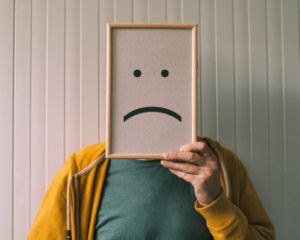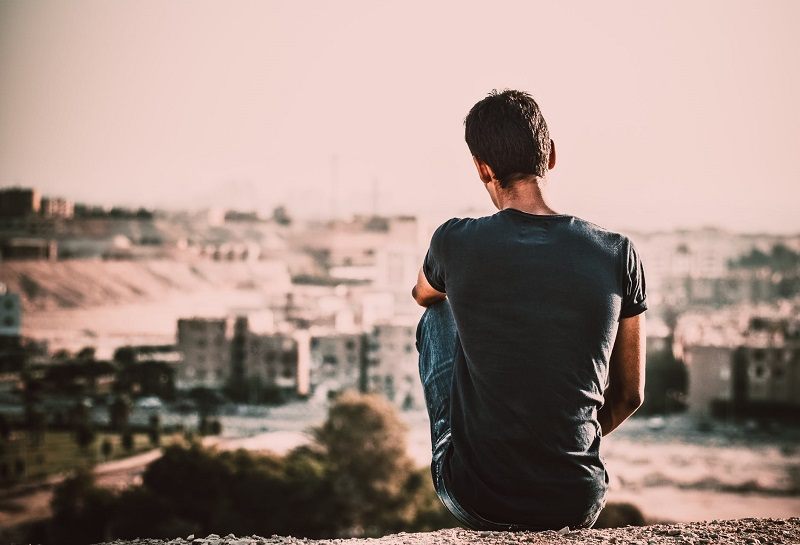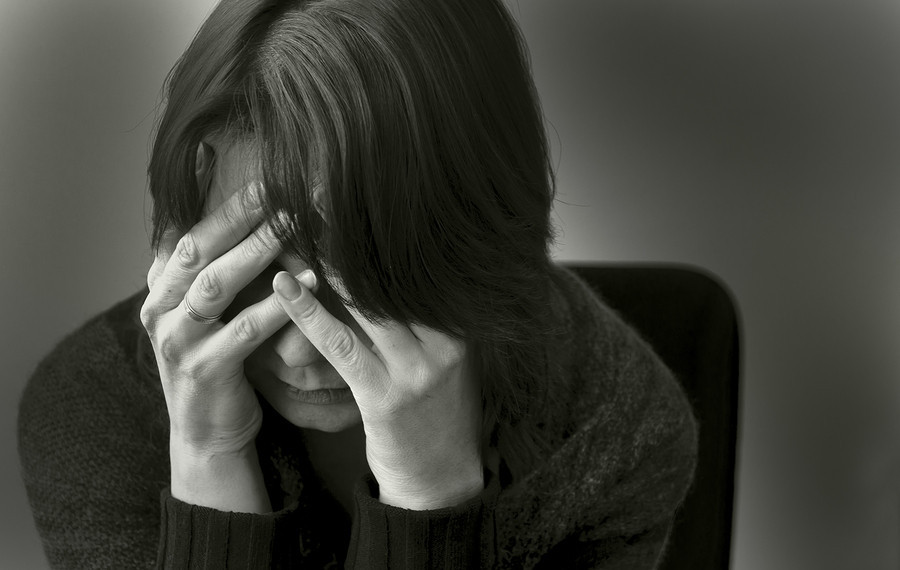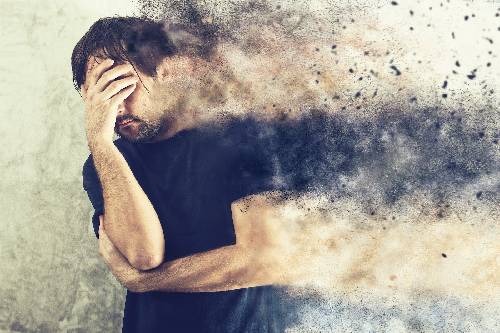Do you feel like you’re stuck in a never-ending cycle of sadness? You might be experiencing cyclical depression. Cyclical Depression is a type of depression that causes recurrent episodes of depressive symptoms. These episodes can vary in length and severity, but they always occur at the same time each year. In this blog post, we will discuss the signs and symptoms of cyclical depression, as well as treatment options.
Contents
What Is Cyclical Depression?

Cyclical depression, also known as recurrent depressive disorder, is a type of depression that comes and goes in cycles. The low periods, or “lows,” can last for weeks or even months at a time. During these periods, you may feel hopeless and lose interest in activities you once enjoyed. You may also have trouble sleeping, eat more or less than usual, and experience physical problems such as headaches or digestive issues.
The exact cause of cyclical depression is unknown, but it is thought to be a combination of genetic and environmental factors. For example, if you have a family member with depression, you may be more likely to develop the condition yourself. Other risk factors include stress, trauma, and certain medical conditions.
While cyclical depression can be a debilitating condition, there are treatments available that can help you manage your symptoms and feel better. If you think you may be suffering from cyclical depression, talk to your doctor. They can perform a physical exam and order tests to rule out other possible causes of your symptoms. They can also refer you to a mental health professional for an evaluation.
Symptoms of Cyclical Depression

There are many signs of clinical depression, but some people only experience them during certain times of the year. This is what’s known as cyclical depression, or seasonal affective disorder (SAD).
While the symptoms of SAD are similar to those of other types of depression, there are a few key ways in which they differ. Some of these symptoms are:
Frequent Feelings of Sadness or Despair
One of the most common symptoms of SAD is a deep feeling of sadness or despair that comes and goes with the seasons. This may be accompanied by feelings of hopelessness, worthlessness, and helplessness.
Changes in Appetite or Weight
People with SAD may find that their appetites change along with their moods. Some people lose interest in food and lose weight, while others find themselves overeating and gaining weight. People may also notice that their cravings for certain foods change.
Sleep Changes
It’s common for people with SAD to either sleep too much or have difficulty sleeping. They may find themselves feeling exhausted during the day, even if they’ve had a full night’s sleep. People with cyclical depression may also have trouble concentrating and experience memory problems.
Changes in Energy Levels
Cyclical depression can cause people to feel sluggish and tired. Even simple tasks may feel like they require a lot of effort. As a result, people with SAD may withdraw from social activities and become more isolated.
Irritability or Anger
While sadness is the most common emotion associated with depression, some people with cyclical depression may instead feel irritable or angry. They may also be more sensitive to criticism than usual.
Physical Symptoms
In addition to the changes in mood and energy levels, people with SAD may also experience physical symptoms such as headaches, joint pain, and stomach problems. These physical symptoms can also make it difficult to concentrate or sleep.
Fatigue and Low Energy Levels
Fatigue and low energy levels are common symptoms of cyclical depression. People with the condition may find it difficult to perform even simple tasks. As a result, they may withdraw from social activities and become more isolated.
Difficulty Concentrating
A person with cyclical depression may have difficulty concentrating on tasks or retaining information. This can make it difficult to work or study. There may be many things going on in a person’s life, but with this type of depression it may feel like the world is moving too fast and it’s hard to keep up.
Memory Problems
People with cyclical depression may also have trouble with their memory. They may forget important details or have difficulty recalling information. This can make it difficult to carry out daily tasks. These memory problems may also make it hard to concentrate.
Headaches and Stomach Problems
Physical symptoms such as headaches and stomach problems are common in people with cyclical depression. These symptoms can be caused by the changes in hormones that occur with this type of depression.
Joint Pain
Joint pain is another common symptom of SAD. The pain may be mild or severe and can make it difficult to move around. These constant aches and pains can make it difficult to concentrate or sleep.
Causes of Cyclical Depression

The exact cause of cyclical depression is unknown, but there are several theories about what might contribute to the condition. One theory is that it may be caused by a disruption in the body’s natural circadian rhythms. The circadian rhythm is an internal clock that regulates the body’s sleep-wake cycle. disruptions in this cycle have been linked to changes in mood and energy levels.
Another theory is that cyclical depression may be caused by a deficiency in certain nutrients, such as vitamin D. Vitamin D is produced by the body in response to exposure to sunlight. People who don’t get enough sunlight may therefore be at risk for a vitamin D deficiency, which has been linked to changes in mood and energy levels.
Some of these other causes are:
Genetics
One of the main risk factors for any type of depression is a family history of the condition. This suggests that there may be a genetic component to cyclical depression. These genetics also seem to be involved in the body’s natural circadian rhythms.
Hormonal Changes
Hormonal changes are thought to play a role in cyclical depression. This is because the condition often begins during puberty and pregnancy, both of which are times of significant hormonal changes. Additionally, the symptoms of SAD often worsen during the winter months, when there is less sunlight. This may be due to a decrease in vitamin D levels, as vitamin D is produced by the body in response to sunlight.
Environmental Factors
Environmental factors such as stress and lack of sunlight may also contribute to cyclical depression. People who live in areas with long winters and little sunlight may be at greater risk for the condition. Stressful life events such as the death of a loved one or divorce can also trigger the onset of cyclical depression.
Some of these environmental factors are:
Job Loss
One of the most common environmental stressors that can trigger cyclical depression is job loss. This can be due to layoffs, firing, or retirement. Job loss can lead to feelings of isolation, anxiety, and worthlessness.
Loss of a Loved One
The death of a loved one is another major life event that can trigger cyclical depression. This can be due to the death of a family member, friend, or pet. The loss of a loved one can lead to feelings of grief, sadness, and loneliness.
Divorce
Divorce is another stressful life event that can trigger SAD. This can be due to the ending of a long-term relationship or the dissolution of a marriage. Divorce can lead to feelings of abandonment, guilt, and anger.
Does Cyclical Depression Impacts Someone?
The impacts of cyclical depression can be mild, moderate, or severe. Some of these impacts of cyclical depression include:
Difficulty functioning at work, school, or home
One of the most common impacts of cyclical depression is difficulty functioning. This means that people who are struggling with cyclical depression may have a hard time keeping up with work, school, or other responsibilities at home.
Isolation and withdrawal from others
Another impact of cyclical depression is isolation and withdrawal from others. People who are struggling with cyclical depression may start to pull away from friends and family members. They may also stop participating in activities that they once enjoyed.
Relationship Issues
The third impact of cyclical depression is relationship issues. People who are struggling with cyclical depression may have a hard time maintaining healthy relationships. They may also have a hard time forming new relationships.
Constant fatigue
The fourth impact of cyclical depression is constant fatigue. People who are struggling with cyclical depression may feel exhausted all the time, even if they’ve had a full night’s sleep.
Loss of interest in activities
The fifth impact of cyclical depression is loss of interest in activities. People who are struggling with cyclical depression may find that they no longer enjoy activities that they once loved. This can include hobbies, sex, and spending time with friends and family.
How To Deal With Cyclical Depression?

Dealing with cyclical depression can be difficult, but there are some things that you can do to help manage the condition. Some of these steps are:
Know Your Triggers
One of the most important things you can do to manage your cyclical depression is to know your triggers. Triggers are anything that can bring on a depressive episode. Some common triggers include:
- Stressful life events
- Hormonal changes
- Seasonal changes
- Not getting enough sleep
- Unhealthy eating habits
- Substance abuse
If you know what triggers your depressive episodes, you can take steps to avoid them or manage them better.
Get Treatment
If you suffer from cyclical depression, it’s important to get treatment. Treatment can help you manage the condition and prevent future episodes. Some common treatments for depression include:
Antidepressant Medication
Medications are often used to treat depression. Antidepressants work by changing the levels of certain chemicals in your brain.
Psychotherapy
Psychotherapy, or “talk therapy,” is another treatment option for depression. This type of therapy can help you identify and change negative thinking patterns and behaviors.
Electroconvulsive Therapy
Electroconvulsive therapy (ECT) is a treatment that involves passing an electric current through the brain. ECT is typically used as a last resort for people who haven’t responded to other treatments.
Self-Care
In addition to getting treatment, it’s important to practice self-care. Self-care means taking care of yourself both physically and mentally. Some self-care tips include:
Getting regular exercise
Some research suggests that exercise can be as effective as medication for treating depression.
Eating a healthy diet
What you eat can affect your mood. Eating a healthy diet can help improve your mood and energy levels.
Getting enough sleep
Sleep is important for both physical and mental health. Getting enough sleep can help reduce stress and promote better mental health.
Practicing relaxation techniques
Relaxation techniques such as yoga, meditation, and deep breathing can help reduce stress and promote relaxation.
Get Support
Another important part of dealing with this type of depression is getting support. Support can come from family, friends, or a support group for people with depression. Having people to talk to who understand what you’re going through can be very helpful. Sometimes, just knowing you’re not alone can make a big difference. This support also can provide valuable information and resources
Establish Routine
An important part of managing cyclical depression is establishing a routine. Having a daily routine can help you structure your day and give you a sense of purpose. A routine can also help you stick to healthy habits such as exercise, eating a healthy diet, and getting enough sleep.
Make Time for Hobbies and Activities You Enjoy
Doing things you enjoy can help improve your mood and make you feel good. Make sure to schedule time for activities that make you happy. This can be anything from reading, spending time with friends, or going for walks in nature.
Try to Avoid Negative Situations and People
Negative situations and people can trigger a depressive episode. If possible, try to avoid stressful situations and negative people. This may mean saying no to social events or spending time with people who are draining.
Seek Help Early
If you think you’re starting to experience a depressive episode, seek help early. Getting treatment early can help prevent the episode from getting worse. If you’re not sure whether you’re depressed or just feeling down, talk to your doctor or a mental health professional. They can help you make a diagnosis and develop a treatment plan.
Conclusion
Cyclical depression is a type of depression that occurs in cycles. The symptoms of cyclical depression can be severe and can interfere with daily life. Cyclical depression is treatable, and there are many resources available to help people who are struggling with this condition. If you think you may be suffering from cyclical depression, please reach out for help. There is no shame in seeking help, and doing so can make a tremendous difference in your quality of life. Thanks for reading.
Hope this article was of help to you! If you are suffering from mental health disorders, you may seek help from Therapy Mantra. We have a team of highly trained and experienced therapists who can provide you with the tools and skills necessary for overcoming mental health disorders. Contact us today to schedule an online therapy or download our free Android or iOS app for more information.

